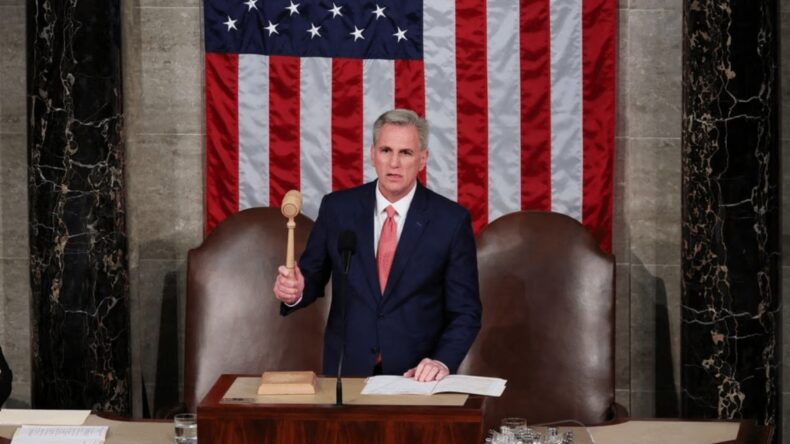China issued a warning for U.S House Speaker Kevin McCarthy on Tuesday advising him not to meet Taiwan’s President Tsai Ing-wen. China said that if the United States decided to meet with the Taiwanese leader it will only result in repeating disastrous mistakes and will not contribute to regional peace and stability.
The U.S House Speaker McCarthy is set to host a meeting on Wednesday in California where he will be meeting with Taiwan’s President Tsai Ing-wen as she transits through the United States of America as part of a routine visit.
Taiwan’s leaders routinely pass through the United States of America and meet up with alliances. The United States had already passed a statement saying that Tsai Ing-wen’s visit to the West did not bear a diplomatic agenda.

Given the USA’s habit of intervention and supporting countries that are against China, Beijing perceived this visit as a threat as the United States could make a move to intervene between Taiwan and China and their conflict.
China issues a warning :
Earlier China had issued a warning to Taiwan saying that it would retaliate if the meeting between USA and Taipei occurred. However, Taiwan said that it would not submit to threats from China and will carry on with its agenda, adding more fuel to the fire. The conflict between China and Taiwan only seems to be escalating and worsening.
The relationship between Taiwan and China is complex and highly contentious, with a long history of political, economic, and military tensions. The issue stems from the Chinese Civil War that took place from 1945 to 1949, where the Nationalist Party (KMT) led by Chiang Kai-shek fled to Taiwan after being defeated by the Communist Party in mainland China.
Just days ago, China poached the Central American country of Honduras from among Taiwan’s handful of formal allies leaving Taipei with only 13 countries that recognise it as a sovereign state.
Since then, China has claimed sovereignty over Taiwan and has consistently asserted its “One China” policy, which considers Taiwan to be a renegade province that must be reunited with the mainland, by force if necessary. Taiwan, on the other hand, has maintained its independence, political system, and distinct culture, and sees itself as a sovereign state separate from China.
The relationship between Taiwan and China has gone through various phases over the years. During the 1990s, the two sides engaged in a series of high-level talks, known as the “cross-strait dialogue,” which led to the establishment of trade, transportation, and other economic ties. However, these talks broke down in the early 2000s, and since then, the relationship has been characterized by tension and occasional military posturing.
China has been increasing its military presence and exercises near Taiwan, which has raised concerns in Taipei and prompted Taiwan to strengthen its defense capabilities. Additionally, China has been using its economic and diplomatic clout to isolate Taiwan internationally, pressuring countries to sever official ties with Taipei and recognize Beijing as the sole legitimate government of China.
Despite these challenges, Taiwan has managed to maintain a vibrant democracy and a dynamic economy, becoming a key player in the global tech industry and an important regional partner for the United States and other countries. The United States, in particular, has been a staunch supporter of Taiwan’s democracy and security, providing arms sales and other forms of assistance to the island.
There is a possibility that China will retaliate and increase its military operations aimed at Taiwan as it has done previously. The tensions between the two sides seem to only escalate as both sides refuse to back down.
Read More: China issued a warning for U.S House Speaker Kevin McCarthy













